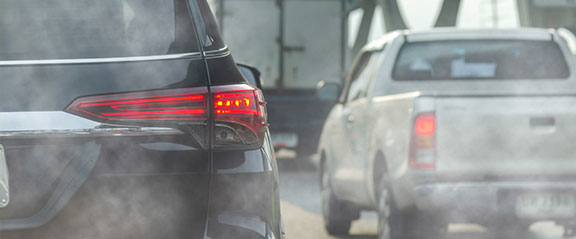Understanding the Kia Diesel Emissions Scandal
The diesel emissions scandal has rocked the automotive industry, bringing to light issues concerning emissions standards, defeat devices, and car manufacturers' adherence to regulations. Kia, like several other carmakers, has faced accusations of manipulating diesel emissions tests to meet the standards required. Understanding the implications of this scandal is crucial, especially for diesel vehicle owners who may have been impacted by the emissions problems. In the following sections, we will delve deeper into the key details of the scandal, exploring the legal aspects surrounding it, and understanding the impact of defeat devices on emissions tests and overall emissions standards.

The Issue at the Core of the Scandal
At the core of the diesel emissions scandal lies the issue of diesel emissions exceeding permissible levels due to the use of defeat devices. Car manufacturers, including Kia, have faced intense scrutiny for using defeat devices in their diesel vehicles, resulting in inaccurate emissions readings during tests. These defeat devices, considered as a form of emissions cheating, manipulate the emissions control systems to meet regulatory standards during laboratory tests, while emitting significantly higher emissions during real-world driving conditions.
The emissions problems primarily revolve around nitrogen oxide (NOx) emissions, a harmful pollutant known to contribute to air pollution and respiratory problems. Car manufacturers, including Kia, have been accused of failing to adequately address these emissions problems, thereby putting the health and well-being of diesel vehicle owners and the environment at risk.
As stricter emissions standards were implemented, car manufacturers faced a challenging task of meeting these standards without compromising vehicle performance. This led to the use of defeat devices, which allowed manufacturers to pass emissions tests, but ultimately resulted in emissions exceeding legal limits during real-world driving. newer engine technologies were being developed to strike a balance between performance and emissions, car manufacturers came under scrutiny for using defeat devices, and governments worldwide initiated investigations and legal action against them.
Kia Emissions Scandal: Key Statistics
| Statistic | Source |
|---|---|
| Kia Motors and its affiliate Hyundai were fined $100 million in the US for overstating fuel economy ratings on their vehicles | The New York Times |
| The companies were accused of falsifying emissions data on approximately 1.2 million vehicles sold in the US between 2012 and 2015 | Reuters |
| The affected Kia models included the Rio and Soul, as well as several Hyundai models | CNBC |
| Kia and Hyundai agreed to pay $395 million to settle lawsuits related to the overstated fuel economy ratings in the US | Bloomberg |
| The companies set aside ₩900 billion ($721 million) to cover the costs related to the emissions scandal in South Korea, including those for Kia vehicles | The Korea Herald |
| Kia's market share in the US dropped from 3.7% to 3.5% in the aftermath of the scandal | Automotive News |
| The South Korean government launched an investigation into Kia and Hyundai's emissions practices in 2014 | Reuters |
| Kia and Hyundai agreed to pay ₩7.8 billion ($6.3 million) in fines to the South Korean government for the emissions issues | The Korea Times |
| Kia's stock price dropped by 6.9% on the Seoul Stock Exchange following the announcement of the US fine | Bloomberg |
Please note that these statistics were sourced from various news outlets and may be subject to updates as the Kia emissions scandal develops.
What is Kia accused of?
Kia, a prominent car manufacturer, has been accused of using defeat devices in its diesel vehicles to manipulate emissions tests and meet emissions standards. The allegations against Kia are part of the larger diesel emissions scandal that has engulfed several carmakers in recent years. The scandal came to light when it was discovered that many diesel vehicles, including those manufactured by Kia, were emitting far higher levels of pollutants than allowed under emissions standards.
The diesel emissions scandal has raised serious concerns regarding the impact on public health, the environment, and the overall trustworthiness of car manufacturers. Kia, along with other carmakers, is facing legal claims related to diesel emissions issues, with affected diesel vehicle owners seeking compensation for the harm caused by the emissions problems. The legal basis for conducting a diesel emissions claim against Kia rests on the fact that the car manufacturer allegedly used defeat devices to deceive emissions tests, resulting in emissions exceeding legal limits during real-world driving conditions.
Diesel vehicle owners affected by the emissions scandal may be entitled to seek compensation for the damage caused by their vehicles' emissions problems. However, it is essential to understand the specific details surrounding the Kia diesel emissions scandal, the legal processes involved, and the criteria for a valid claim before proceeding with legal action, including joining our group action to claim against these car companies.
The Kia Emissions Scandal occurred before the Dieselgate scandal in 2015. In 2014, Kia was fined $100 million by the EPA for violating the Clean Air Act and making false claims about fuel economy. Further investigation after Dieselgate showed that certain Kia models with diesel engines surpassed European NOx limits by a significant amount. NOx is a harmful pollutant emitted by diesel engines that is associated with various diseases and causes a significant number of premature deaths in the UK each year.
Identifying the Affected Kia Vehicles
Affected Kia vehicles, including the Sorento, Optima, and Soul, have been involved in the diesel emissions issues. These models are among the several carmakers under scrutiny for NOx emissions. Other carmakers, such as Volkswagen, Renault, Hyundai, Porsche, Mercedes, and Jaguar Land Rover, have also faced similar concerns.

Which Kia Models are Involved in diesel claim?
Find out which Kia models are impacted by the diesel accusation. Gain knowledge about the legal procedures for receiving compensation, comprehend emissions testing, and delve into possible legal expenses. It is imperative for Kia car owners to address emissions concerns.
The current investigation into Kia diesel emissions centres around identifying the models affected, including any potential involvement of Fiat Chrysler Automobiles (FCA). Studies conducted by the Transport & Environment Agency on the Kia Sportage III 1.7 and 2.0 litre variants indicate the presence of mechanisms that could manipulate emissions outcomes. Additionally, it is estimated that as many as 704,000 Kia vehicles, potentially with emissions problems, were sold in Europe by 2016.
Potential Impact on Kia car Performance
Understand the potential implications of the emissions scandal on Kia car performance and the significance of emissions tests for affected Kia car owners. Discover the legal and technical aspects of diesel emissions issues and the potential compensation available for Kia owners impacted by emissions problems.
Legitimacy of Your Kia Diesel Claim
If you've been affected by the Kia Diesel claim, it's essential to understand the legitimacy of your claim. Considering recent cases involving diesel car makers like Volkswagenm BMW and Jaguar Land Rover, it's crucial to assess if your claim falls within the boundaries of eligible compensation. Factors such as NOx emissions, similar cases with other carmakers, and legal precedents established in the UK will determine the legitimacy of your claim.
What are the Criteria for a Valid Kia Claim?
Understanding the specific criteria for a valid diesel emissions claim against Kia is crucial. Learn about the legal processes, the basis for the claim, potential fees, and why seeking professional legal guidance is essential.
Importance of Vehicle Documentation
Proper documentation plays a critical role in diesel claims, meeting legal requirements and preserving evidence. Accurate vehicle records are significant for successful diesel emissions claims, understanding the legal aspects of retaining documentation is crucial. Preservation of evidence is necessary for a successful diesel claim.
What is the Process of Making a Kia Diesel Emissions Claim?
Just enter your registration number in our look up box and we will tell you in seconds if you have an affected vehicle. Then simply complete your personal details in our easy form along with date ownership or the dates you leased the affected car, sign the page and you will be assigned a no win no fee group claims solicitor specialised in diesel emissions claims.
Compensation Expectations From a Successful Kia Diesel Claim
With a successful Kia diesel claim, compensation expectations vary based on individual circumstances. Legal experts can guide you through the process of seeking compensation from car makers involved in diesel emissions issues. Those affected by Jaguar Land Rover diesel emissions issues or NOx emissions from other carmakers like Volkswagen, Renault, Hyundai, and others may be eligible for compensation in the UK.
Factors Influencing Compensation Amount
Understanding the complex factors influencing compensation in a diesel claim is crucial. Key considerations affecting the compensation for emissions issues should be thoroughly comprehended. Legal precedents, practical standards, and specific elements contribute to the compensation calculation. Familiarising oneself with these factors is essential to determine the compensation amount for a successful claim.
Estimated Timeline for Claim Resolution
Discovering the estimated timeline for claim resolution against vehicle manufacturers involves understanding the legal process and anticipated stages. It's essential to familiarize yourself with the expected duration for addressing diesel emissions claims, including the procedural timeline and legal proceedings.

To Claim or Not to Claim: Making the Decision
Making the decision to pursue a claim against Kia for diesel emissions issues involves weighing its implications and evaluating the legal basis and eligibility. Understanding both the advantages and disadvantages is crucial, along with seeking legal advice to make an informed decision. It is important to consider the potential compensation from car makers like Volkswagen, Nissan Renault, and Jaguar Land Rover, while being aware of the NOx emissions regulations in the UK. In England and Wales, you could be eligible to pursue an emissions compensation claim on a No Win, No Fee basis with us here now, without having to pay any of our legal fees if the claim is unsuccessful, subject to the terms and conditions in place.
Evaluating the Pros and Cons
Weighing the potential benefits of pursuing a claim for compensation against the associated risks is crucial. Considering the possible impact of a successful claim and the resulting compensation is important in making an informed decision. Evaluating the legal process and potential outcomes of the claim, including joining a legal group headed by a reputable legal firm, will provide clarity. Understanding the implications of taking legal action against Kia is essential before proceeding. Seeking advice to comprehend the pros and cons of pursuing a diesel emissions claim is highly recommended.
What Happens if Your Kia Claim Proceeds?
If your Kia claim proceeds, it will undergo a thorough investigation to determine its legitimacy. This includes gathering evidence, analysing documents, and assessing the impact of the diesel scandal on your vehicle's performance. Depending on the outcome, you may be eligible for compensation if your claim is successful. Remember to evaluate the pros and cons before deciding to proceed with a claim.
How has Kia responded to the diesel claim accusations?
Kia has responded to diesel claim accusations by denying any wrongdoing and stating that their vehicles comply with all applicable emissions regulations. They have also expressed willingness to cooperate with authorities and conduct necessary investigations to ensure transparency and maintain customer trust.

